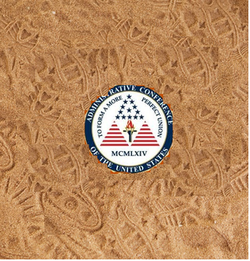| "How old would you be if you didn't know how old you are?" ~ Satchel Paige |

Back in the day, ACUS was a great friend to advocates of more functional immigration laws. It adopted Recommendation 89-9 (Processing and Review of Visa Denials) at the urging of a tireless law professor, James Nafziger, who has long railed against the scourge of consular nonreviewability, or as many prefer, consular absolutism, an injury that can still hurt years after a visa refusal. Apparently to save its funding ACUS claimed in 1995 that it had indeed made progress on consular review -- a fib I forgive, given ACUS's latest activity (described later in this post):
| 89-9 Processing and Review of Visa Denials Partially implemented. Recommends that the Department of State implement changes in its procedures for review of visa applications at United States consulates abroad. The recommended changes include permitting the assistance of attorneys, increased explanation of the basis for denials, making public advisory opinions of the Visa Office, and studying the development of an administrative appeals process for visa denials. The Recommendation was transmitted to the Secretary of State and to relevant Congressional committees. In 1990, the ABA adopted a resolution supporting most elements of this recommendation [p. 56]. In 1990, the Legal Adviser of the State Department indicated, in a letter to the Chairman, that the Department was considering implementing specified parts of the Recommendation but would likely not initiate a study of the implementation of administrative appeals. In 1992, H.R. 5173 was introduced to establish a Board of Visa Appeals in the State Department. In 1993, the State Department issued a cable emphasizing the need to give explanations of the reasons for visa denials, and providing additional information in cases where an advisory opinion is being sought. (Italics in original.) |
While that battle is in pause mode, ACUS is proposing a slew of administrative reforms for consideration on June 16 that would apply generally to all Executive Branch agencies. The most important for immigration aficionados would make the immigration system more just and efficient. The ACUS proposal offers a cornucopia of improvements (37 in all) to the immigration courts and the removal process which would help take the 800 lb. kangaroo out of the court room. The recommendations are backed up by a 133-page report by Law Professor Lenni Benson (I'm proud to say she was my former partner at Bryan Cave [see her here as she explains CIR's promise and peril in this 9-minute video]) and Russell Wheeler, a visiting fellow at the Brookings Institution.
If ACUS approves the recommendation to fix the immigration removal system, that will surely change the national dialogue. Although the reincarnated ACUS hasn't yet tackled comprehensive immigration reform, this public-private partnership will deflate the arguments of immigration hardliners who oppose CRI and just hate it that border crossings are down. By showing how the system can be made more efficient, less costly and more just -- meaning that people who really ought not be here are removed quickly and cheaply, while those with equity are allowed to reclaim their quest for the American Dream -- ACUS will help force the opponents of reform to face the inevitable need to fix the two other legs of the CRI stool (the undocumented who are here and future flows of those whom we need).
Among the other ACUS proposals for consideration on June 16 is one that likewise addresses immigration dysfunctionality. As the Federal Regulations Advisor Blog describes it, the proposal would "Improv[e] Coordination of Related Agency Responsibilities:
| The Committee on Collaborative Governance makes recommendations on the perceived problem of overlapping and fragmented procedures associated with assigning multiple agencies similar or related functions, or dividing authority among agencies. In reviewing the report by Jody Freeman (Harvard) and Jim Rossi (Florida State), agencies will need first to determine their jurisdiction, an issue of large concern by itself. |

Welcome back ACUS. Let's Quixote-like (as opposed to coyote-like) build CIR castles with solid foundations and tilt at more dysfunctional windmills in the immigration sandbox together!

 RSS Feed
RSS Feed
